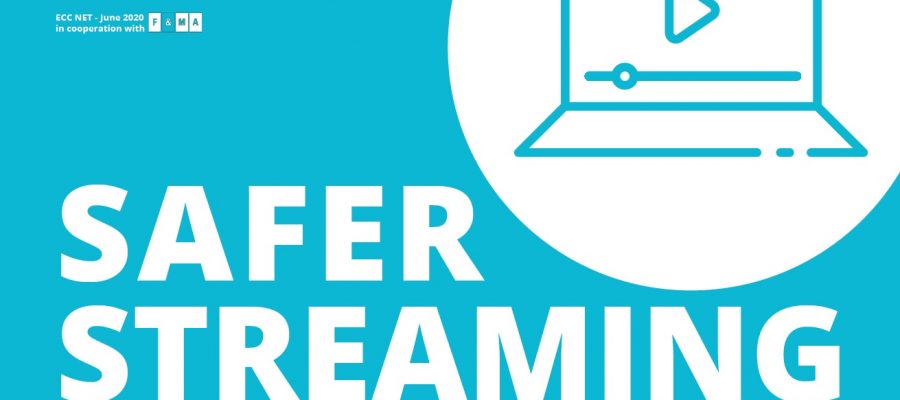
Streaming of TV series and movies is booming. The rise in streaming on services such as Netflix, Amazon Prime and YouTube has been so significant that it led the EU Commission to ask these companies to take action by reducing bit rates across all streams for thirty days during the Corona virus crisis to reduce the pressure on internet infrastructure and ensure demand continued to be met. Upon the move to cloud computing, the entertainment industry hoped that streaming technology could be a good way to counter illegal downloads and piracy.
Many streaming platforms offer opportunities to produce creative and individualized programs and films. According to media and communication scientists, Netflix could go down in media history as the company that rewrote television in the twenty‐first century while we witness a rift in the world of mainstream linear television nowadays.
Today´s main “over‐the‐top” (OTT) services radically transform what TV and cable used to be. Comparable to the three large American TV-networks in the 1950ies, today´s biggest three OTT providers first dominated the US streaming market of the 2010s, with the best known social media corporations following suit in market reach. With a certain delay and the emergence of local streaming platforms, this trend is now changing the TV- landscape in Europe too. Since the commercial success story and international expansion of Netflix, the market ranking is being challenged, as major TV and internet companies across the globe try to get a foothold in the multi-billion market of streaming.
How to recognise an illegal provider?
 Many customers are not able to tell the difference from a legal site. As they do not pay for making or using the content like legitimate businesses, illegal operators feature unrivalled prices. Customers of such illegal sites should be aware that they are directly financially supporting criminal activity and by doing so, are handing over their personal data to those who should not get it under any circumstances. While a regular company follows the rules and provides verifiable contact information on its website, as well as registering its internet domain in its own name, problematic sites intentionally avoid transparency. Such operators mask their identity in order to avoid being found out by law enforcement. They do this by hiding behind fake names or other companies, as well as using addresses in exotic locations or just naming random addresses, where the alleged company is not registered at all. They will also not respond to notices or complaints from consumers who will thus be unable to enforce their rights. Their business partners that provide financial or technical infrastructure are complicit in the situation, making a lot of money while looking the other way and taking no responsibility.
Many customers are not able to tell the difference from a legal site. As they do not pay for making or using the content like legitimate businesses, illegal operators feature unrivalled prices. Customers of such illegal sites should be aware that they are directly financially supporting criminal activity and by doing so, are handing over their personal data to those who should not get it under any circumstances. While a regular company follows the rules and provides verifiable contact information on its website, as well as registering its internet domain in its own name, problematic sites intentionally avoid transparency. Such operators mask their identity in order to avoid being found out by law enforcement. They do this by hiding behind fake names or other companies, as well as using addresses in exotic locations or just naming random addresses, where the alleged company is not registered at all. They will also not respond to notices or complaints from consumers who will thus be unable to enforce their rights. Their business partners that provide financial or technical infrastructure are complicit in the situation, making a lot of money while looking the other way and taking no responsibility.
To avoid supporting crime involuntarily, watch out for unrealistic offers. For example, films that are still in cinemas or are about to be released will not be available online except on a legitimate platform having paid for such an exclusive right.
Slogans like „100% legal“, „unlimited“ or „free content“ from unfamiliar sites are usually signs of stolen content. Often, they urge users to sign up quickly to get a special bargain. Film sites that allow uploading or show you a barrage of obtrusive pop-up ads are also a red flag. Equally, offers with yearly fees, but no business details and no contact information should alert you that you reached an illegal site. It is important to distinguish between illegal sites offering stolen content and fake subscription sites. Although fake sites imitate the look of streaming sites, it is usually not possible to access any content at all from them after registering. They are only set up to trap you into costly subscriptions. The site will disappear after enough victims have paid for empty promises and reappear with a different name and domain shortly thereafter. Consumers are unlikely to get their money back. Their second purpose is to steal private data and information which is called “phishing”.
They will not only send invoices for several hundred Euros to the addresses of new „subscribers“, but also sell the stolen data to other criminal ventures. In fact, hundreds of such fake sites have been set up across Europe with exactly the same look and scam model. Most pretend to provide films or /series, some also music, games, or e-books, or vouchers for cinemas.
In some cases, fake film portals even pretend to be victims of criminal activity themselves and try to deceive users with e-mails requesting more private information, like copies of official identification documents or SMS confirmations.
While pretending to care about security, they abuse unprepared victims even more in selling personal data they get through this method, in addition to the financial damage already caused. Consumer organizations and law enforcement authorities across Europe repeatedly issue warnings about such practices, and may even have lists of fraudulent sites discovered to date (and the lists grow quickly).
Beware of other forms of systematic fraud that pretend to be connected to creative content. For example, sometimes, social media accounts of legitimate offers are copied by fraudsters to trick you into sharing information about yourself that can be misused. The page may look like „the real thing“, but there is seldom content behind the fake front page. Take your time to run a basic check (see blue box below) of the site before you submit your information.



